 We recently wrote about the movie version of the Sheena story, Sheena, Queen of the Jungle, but that was not the most recent adaptation. For Sheena would eventually return in form of another TV-series that ran for two seasons and 35 episodes from 2000-2002. It’s quite likely that producers Douglas Schwartz and Steven L. Sears hoped to cash in on the trend of action-adventure TV-shows that were then popular thanks to series like “Hercules” and “Xena”. Sears himself was enjoying quite some success with “Xena – Warrior Princess” which he wrote several scripts of and partly co-produced.
We recently wrote about the movie version of the Sheena story, Sheena, Queen of the Jungle, but that was not the most recent adaptation. For Sheena would eventually return in form of another TV-series that ran for two seasons and 35 episodes from 2000-2002. It’s quite likely that producers Douglas Schwartz and Steven L. Sears hoped to cash in on the trend of action-adventure TV-shows that were then popular thanks to series like “Hercules” and “Xena”. Sears himself was enjoying quite some success with “Xena – Warrior Princess” which he wrote several scripts of and partly co-produced.
Unfortunately, the “Sheena” show was nowhere near as captivating as “Xena” was. Sheena (Nolin) is far from the “cute but a bit naive” version that Tanya Roberts played. Here, Sheena is more a kind of eco-terrorist, fiercely protecting “her” jungle of Maltaka – so you’d better behave if you go there! Along comes Matt Cutter (Nelson) with his constantly ironically snarky companion Mendelson (Quigley). Cutter is out for the quick buck, leading tourists in the jungle, trying to forget his former career as a CIA-agent (!). But after clashing with Sheena in the beginning they quickly establish a working relationship – usually meaning Sheena will draw the poor man into another harrowing adventure of hers.
Obviously, there are plenty of terrible things that can happen in the jungle, be it big game hunters, terrorists, military coups or tribal wars that have to be prevented. While the show quite obviously had a very limited budget – I couldn’t escape the fact after some time that they always filmed at the same five locations – I give the film makers credit. They tried to make their show as diverting as possible as they could, with the time and money they had at their disposal.
Sheena has changed quite a bit from her previous version; she is no dumb blonde in the jungle, she reads Tom Clancy and romantic novels, has her own cave, is trained in the mystical art of transforming into any animal with whom she has eye-contact (I immediately had to think of the old TV-show “A case for Professor Chase” when seeing this) by Shaman Kali (Moorer) and has absolutely no qualms about killing off evil-doers in the jungle – and there are plenty over the course of the show).
 Usually she transforms into what she calls the “Darakna” – which essentially means she puts black mud on her body and gloves, with bone claws on to slash her enemies to death. Don’t worry: it’s neither bloody nor (after the first time they show it to us) very exciting. I just wonder if, by doing that, she also immediately became super-powered. though she already is a strong fighter. Or if it just made the killing easier for her, as she then wasn’t “quite herself” (to quote Norman Bates!).
Usually she transforms into what she calls the “Darakna” – which essentially means she puts black mud on her body and gloves, with bone claws on to slash her enemies to death. Don’t worry: it’s neither bloody nor (after the first time they show it to us) very exciting. I just wonder if, by doing that, she also immediately became super-powered. though she already is a strong fighter. Or if it just made the killing easier for her, as she then wasn’t “quite herself” (to quote Norman Bates!).
It seems the producers were going for some kind of developing love story – differently to “Xena”, there are no overlapping story-arcs, just stand-alone episodes. But if so, they blew it. It seems all the efforts of Cutter were in vain, after early in the second season, Sheena has sex with a random stranger after a couple of unsubtle compliments from him. A couple of episodes later, we are asked to believe that Cutter gets together with an Asian women he once met in a training unit at the CIA. Oh, and we have to suffer through the usual episode where Sheena meets her “first love,” or the one where a special-mission leads Cutter’s ex-wife into the jungle.
Nolin and Nelson never have much chemistry with each other, that would let them appear as anything more than good friends. There’s no Xena-Gabrielle spark here, if that’s what you were hoping for! So if you thought we were getting the Sheena-Cutter-happy ending no one was asking for, you’d be wrong. Cutter says good-bye to another beautiful blonde at the beginning of the last episode, who thanks him for “showing him the world”, and the rest deals with a tribe mistaking constantly monotonously babbling wanna-be-snark Mendelson for a wise, old leader with the same name. The series ends as unspectacularly as it began.
 That said, while the show (like most shows of its ilk at the time) is underwhelming compared to “Hercules” and “Xena”, I do think the screenwriters really tried to come up with as inventive stories as possible, given the fact that the “adventures in the jungle” was already a genre as dead as a door-nail. There are some good ideas here: plants that raise certain hormones in your blood, making you love-struck as well as murderous (therefore having Cutter and Sheena try to kill each other); a female black Rocky in the jungle, faced with countless attacks by her opponents; a kind of “X-files”-episode, with the audacity to play that show’s musical theme a couple of times in the episode; or the dangerous giant ants that eat anything. setting Cutter and Sheena in quite a distressing position.
That said, while the show (like most shows of its ilk at the time) is underwhelming compared to “Hercules” and “Xena”, I do think the screenwriters really tried to come up with as inventive stories as possible, given the fact that the “adventures in the jungle” was already a genre as dead as a door-nail. There are some good ideas here: plants that raise certain hormones in your blood, making you love-struck as well as murderous (therefore having Cutter and Sheena try to kill each other); a female black Rocky in the jungle, faced with countless attacks by her opponents; a kind of “X-files”-episode, with the audacity to play that show’s musical theme a couple of times in the episode; or the dangerous giant ants that eat anything. setting Cutter and Sheena in quite a distressing position.
There are also some “guest stars” though you shouldn’t expect the A-class of actors here. I noticed Grand L. Bush (whom I know from a minor role in the James Bond-movie Licence to Kill some 11 years earlier), make-up specialist and occasional actor Tom Savini (From Dusk till Dawn) and the Tarzan of the 60s, Ron Ely in a villain role. At least the team tried, though you hardly ever can speak of three-dimensional villains here. You also have to forgive the typical 90s CGI-morphing and masks that were terrible, even in better and more prestigious TV shows of the time than this one.
All in all, “Sheena” is not a great show but given its limitations I would say the people in charge tried to do their very best. Though while I could still binge-watch “Xena” today, “Sheena” is something that I would probably only watch again if I woke up at 2 a.m. and regular TV didn’t offer anything better at that time.
Creators: Douglas Schwartz and Steven L. Sears
Star: Gena Lee Nolin, John Allen Nelson, Kevin Quigley, Margo Moorer





 A sold enough entry, this benefits from a well-written script, but gets marks taken off for having a heroine who is rather too passive. Yolanda Acosta (Paleta) is sent to a higher security facility when she is recaptured, following an escape from her previous prison. It’s a mixed-gender facility (common in Mexico), and she comes to the attention of Benedictino Suárez (Zurita), a.k.a. “Centaur”, a local crime boss who is also incarcerated. He falls hard for Yolanda – the title translates as “Centaur’s Woman” – and when his escape plan comes to fruition, offers to bring her along with him, to the ranch on which he’s hiding out. And that’s where the problems really start for Yolanda.
A sold enough entry, this benefits from a well-written script, but gets marks taken off for having a heroine who is rather too passive. Yolanda Acosta (Paleta) is sent to a higher security facility when she is recaptured, following an escape from her previous prison. It’s a mixed-gender facility (common in Mexico), and she comes to the attention of Benedictino Suárez (Zurita), a.k.a. “Centaur”, a local crime boss who is also incarcerated. He falls hard for Yolanda – the title translates as “Centaur’s Woman” – and when his escape plan comes to fruition, offers to bring her along with him, to the ranch on which he’s hiding out. And that’s where the problems really start for Yolanda.
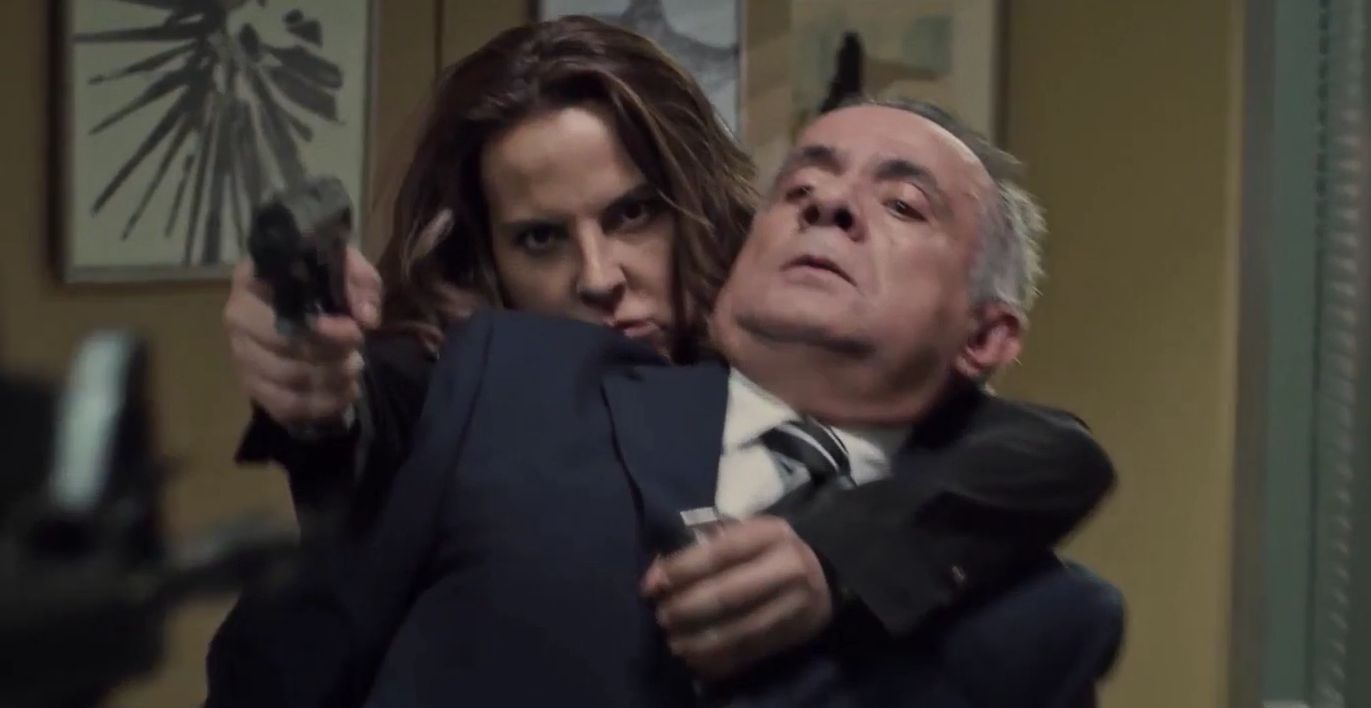 ★★★
★★★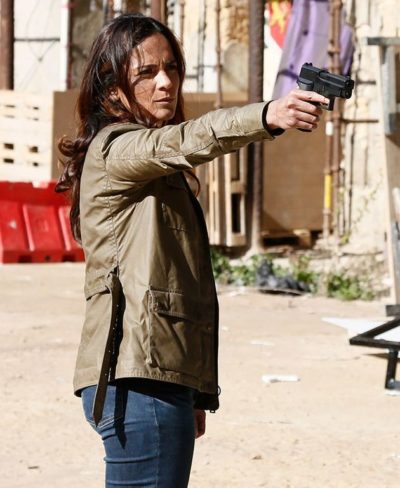 We arrived here with Teresa Mendoza (Braga) having gunned down Don Epifanio, and made an implacable enemy of his estranged wife, Camila Vargas (Falcon). Epifanio had become the Governor of Sinaloa, a position Camila took over, using it to buttress her position at the top. She formed alliances on both sides to assist her further: notably General Cortez (Arias), who provided military muscle, and with DEA agent Alonzo Loya, to whom she fed intelligence about her rivals. However, Camila’s increasingly strained relationship with her teenage daughter ends up being used against her.
We arrived here with Teresa Mendoza (Braga) having gunned down Don Epifanio, and made an implacable enemy of his estranged wife, Camila Vargas (Falcon). Epifanio had become the Governor of Sinaloa, a position Camila took over, using it to buttress her position at the top. She formed alliances on both sides to assist her further: notably General Cortez (Arias), who provided military muscle, and with DEA agent Alonzo Loya, to whom she fed intelligence about her rivals. However, Camila’s increasingly strained relationship with her teenage daughter ends up being used against her.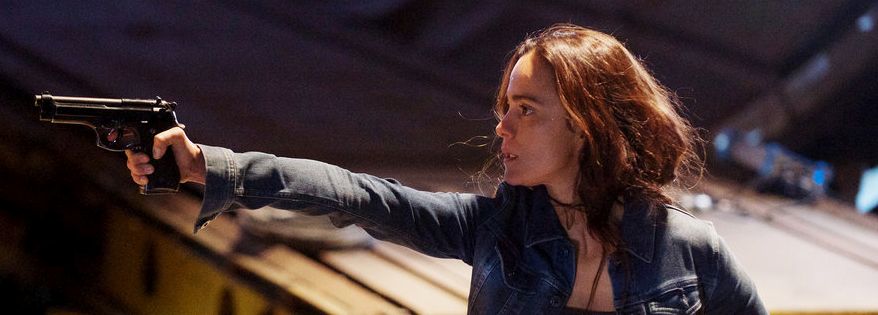
 The 16-part series proved an unexpected sleeper hit in its native land, more than doubling the audience from debut to finale. This is all over the place in terms of genre, with comedy, thriller, romance and action threads. While they aren’t equally successful, it does a pretty decent job of managing most of them, and is surprisingly accessible for a Western audience. The heroine is Do Bong-soon (Park B-Y), the latest in a matriarchal line of very strong women. She has been brought up to keep her power suppressed, due to the potential issues it can cause; Bong-soon has also been warned that if she misuses them, and hurts an undeserving person, they will go away. [Let’s not worry too much about how this presents an easy solution: slap one innocent, and she would become just like everyone else…]
The 16-part series proved an unexpected sleeper hit in its native land, more than doubling the audience from debut to finale. This is all over the place in terms of genre, with comedy, thriller, romance and action threads. While they aren’t equally successful, it does a pretty decent job of managing most of them, and is surprisingly accessible for a Western audience. The heroine is Do Bong-soon (Park B-Y), the latest in a matriarchal line of very strong women. She has been brought up to keep her power suppressed, due to the potential issues it can cause; Bong-soon has also been warned that if she misuses them, and hurts an undeserving person, they will go away. [Let’s not worry too much about how this presents an easy solution: slap one innocent, and she would become just like everyone else…] I don’t typically binge-watch shows, being generally content with an episode or two per week. For the second season of GLOW, Netflix’s original series (very) loosely based on 80’s TV show Gorgeous Ladies of Wrestling, we made an exception and blitzed through the series in a couple of days. This in itself is a recommendation – with most of the episodes running barely 30 minutes, it was very much a case of “just one more…” Before we knew it, we were done, and left with a vague feeling of emptiness and slight regret at having burned the 10 episodes so quickly.
I don’t typically binge-watch shows, being generally content with an episode or two per week. For the second season of GLOW, Netflix’s original series (very) loosely based on 80’s TV show Gorgeous Ladies of Wrestling, we made an exception and blitzed through the series in a couple of days. This in itself is a recommendation – with most of the episodes running barely 30 minutes, it was very much a case of “just one more…” Before we knew it, we were done, and left with a vague feeling of emptiness and slight regret at having burned the 10 episodes so quickly.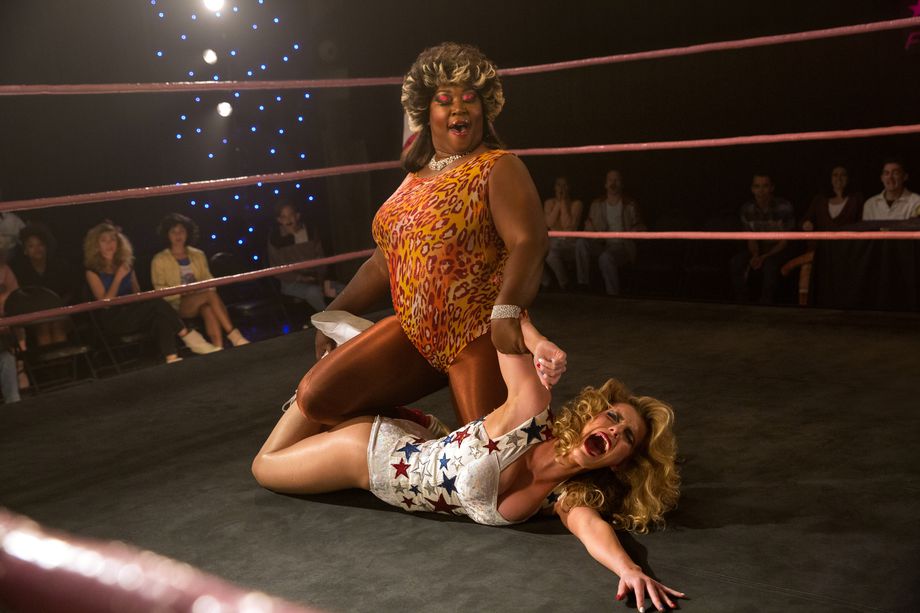
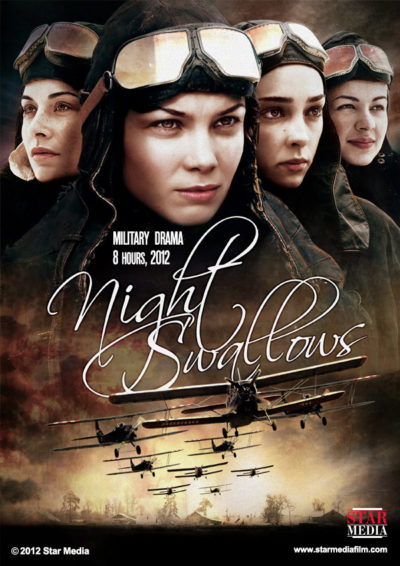 This week, we’ve been focusing on Soviet military heroines of World War II, and as well as
This week, we’ve been focusing on Soviet military heroines of World War II, and as well as 
















 I stumbled across this Russian TV series on Amazon Prime during our annual freebie month, but not until the final weekend, so wasn’t able to watch it there. Happily, I discovered the entire show has been uploaded to YouTube – embedded below, complete with English subtitles – and it’s well worth a watch. It’s set during World War II, and tells the story of two young women, from diverging backgrounds, both of whom are recruited in 1941, somewhat unwillingly. to act as intelligence operatives, during the early day
I stumbled across this Russian TV series on Amazon Prime during our annual freebie month, but not until the final weekend, so wasn’t able to watch it there. Happily, I discovered the entire show has been uploaded to YouTube – embedded below, complete with English subtitles – and it’s well worth a watch. It’s set during World War II, and tells the story of two young women, from diverging backgrounds, both of whom are recruited in 1941, somewhat unwillingly. to act as intelligence operatives, during the early day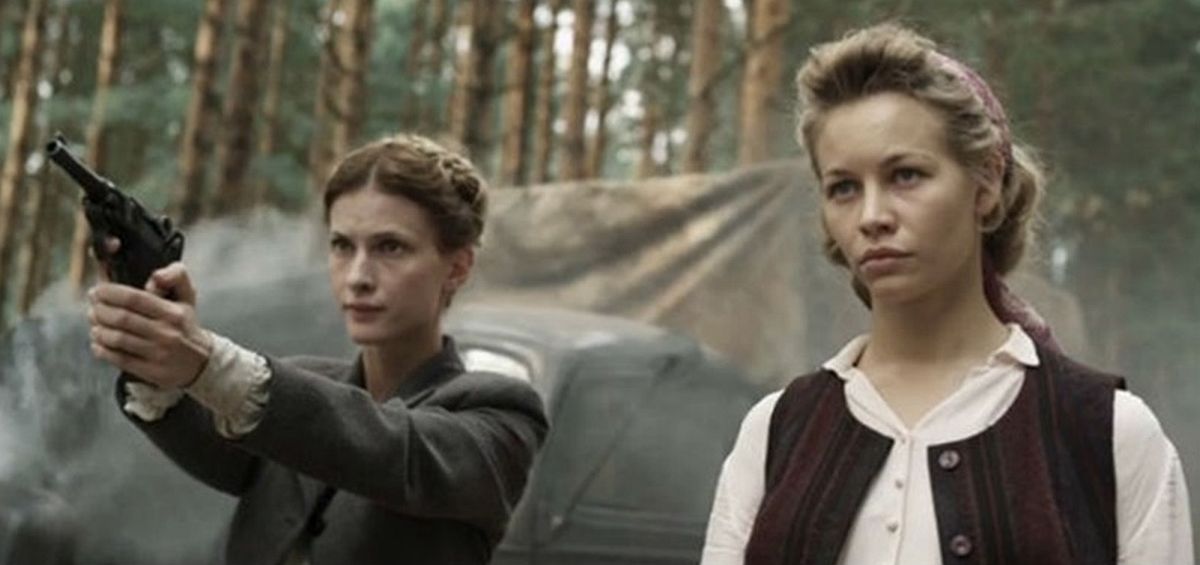
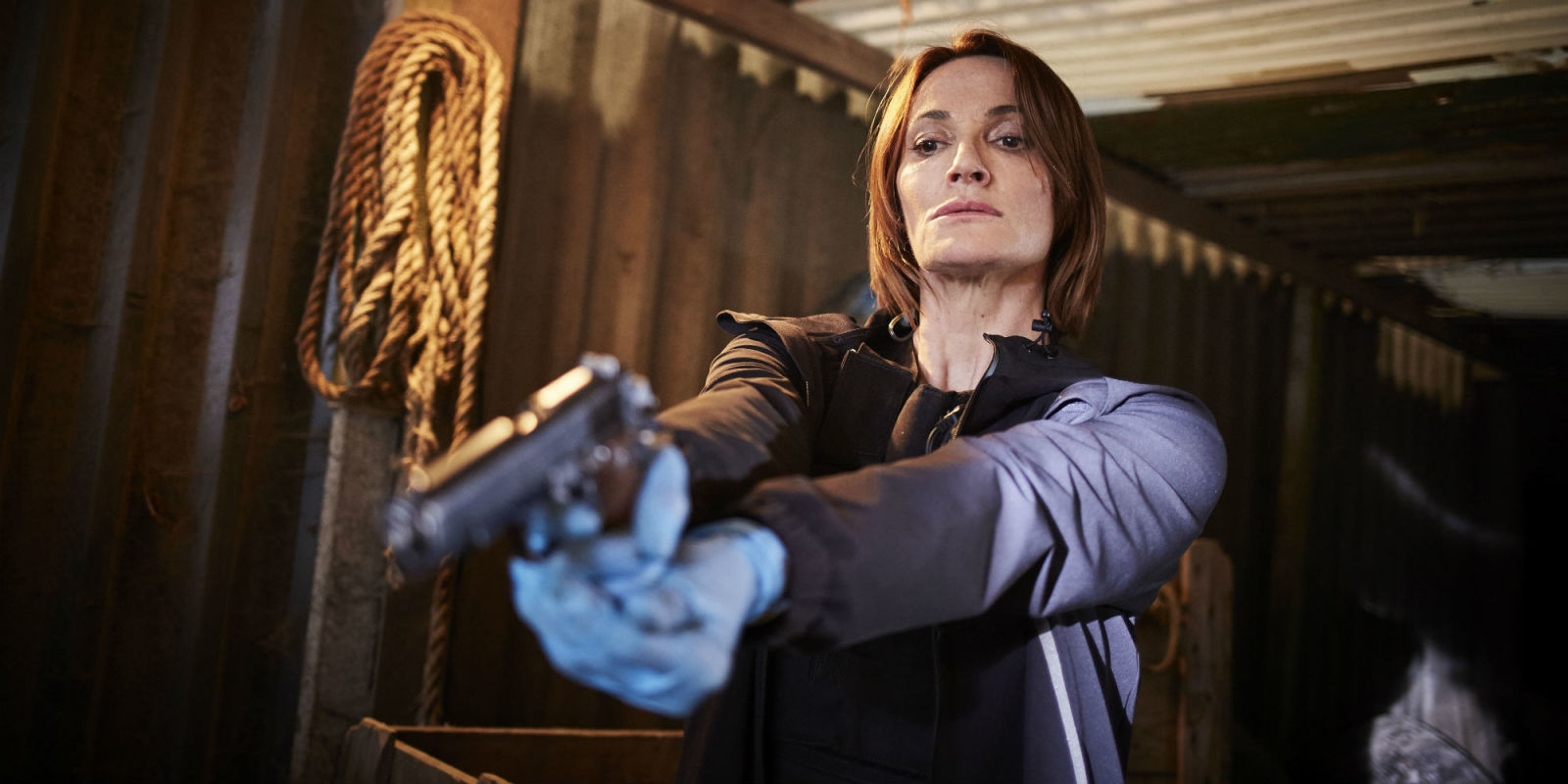 ★★★½
★★★½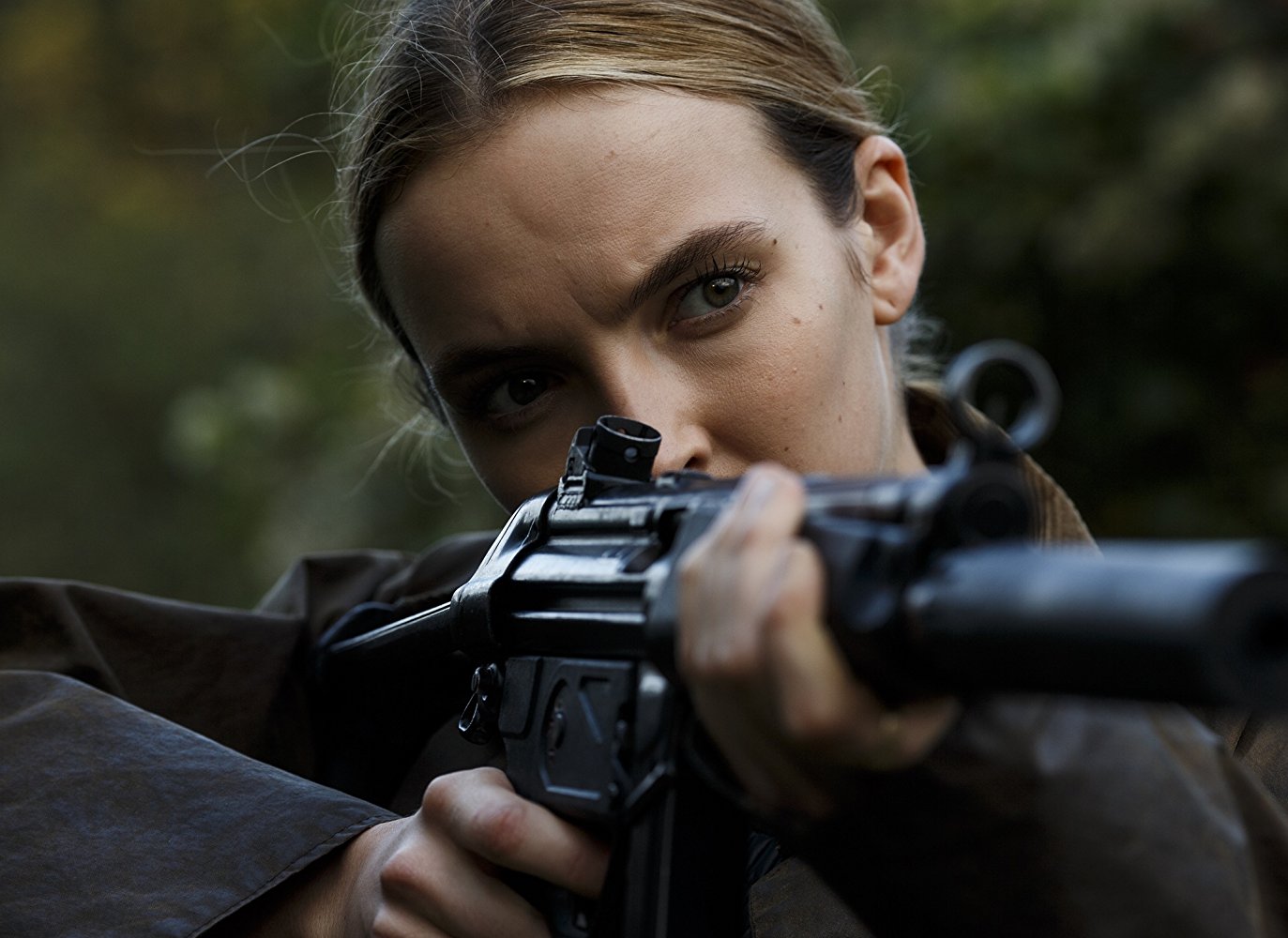 ★★★★
★★★★ The show is defiantly messy in terms of its characters, who manage both to embody the stereotypes of the dogged law-enforcement official and the slick, femme fatale, while also subverting them. From the viewpoint of this site, Oksana is likely the more interesting. As a high concept, imagine a female version of Dexter: charming and affable on the surface, yet extraordinary lethal – and capable of flicking that switch in a moment. The difference is, Villanelle has chosen not to control and direct her “dark passenger” so much as embrace them fully, and is given the chance to do so by the profession into which she is recruited. It also allows her to indulge her fondness for haute couture.
The show is defiantly messy in terms of its characters, who manage both to embody the stereotypes of the dogged law-enforcement official and the slick, femme fatale, while also subverting them. From the viewpoint of this site, Oksana is likely the more interesting. As a high concept, imagine a female version of Dexter: charming and affable on the surface, yet extraordinary lethal – and capable of flicking that switch in a moment. The difference is, Villanelle has chosen not to control and direct her “dark passenger” so much as embrace them fully, and is given the chance to do so by the profession into which she is recruited. It also allows her to indulge her fondness for haute couture.